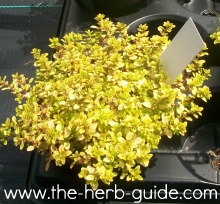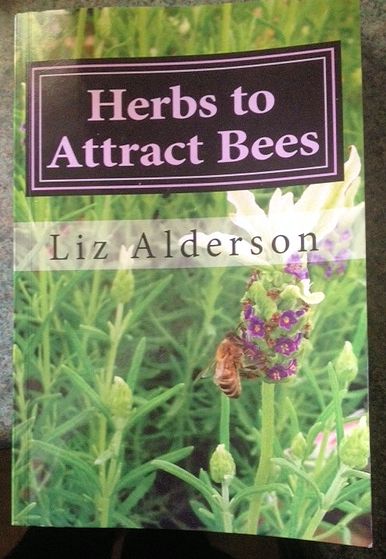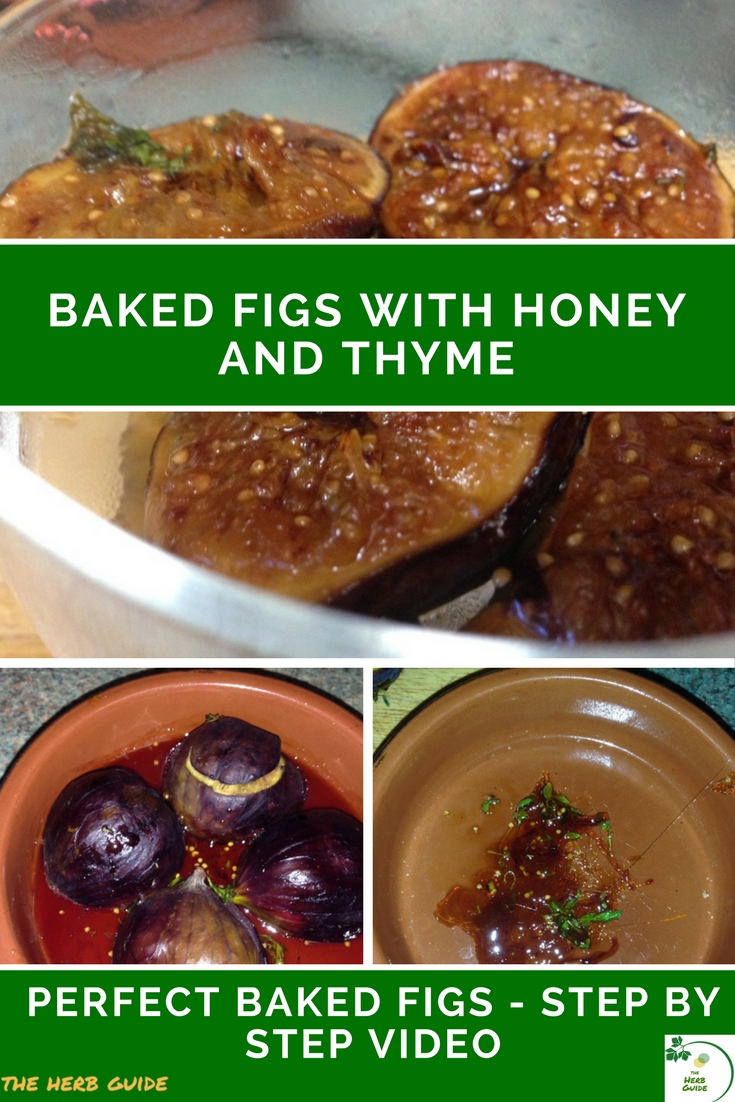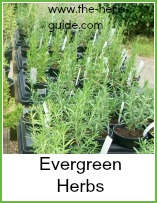- The Herb Guide Home
- Growing Herbs
- Growing Thyme
Growing Thyme
As an Amazon Associate I earn from qualifying purchases
Growing thyme is quite straightforward. It is a delightfully aromatic, small evergreen shrub.
There are many types, but the best for culinary use is the Common or Garden Thyme - vulgaris.
Save the Planet - urban bees are doing better than country bees - read how you can help the 'cause' - all is not lost!
- cultivation tips
- herbal cosmetics
- herbal remedies
- preserve herbs
- 150 bee friendly plants
- cope with bee stings
- gardener's glossary
All this and more - available now via Amazon (Kindle version as well as paperback)
Growing Thyme
Select a sunny aspect - thyme likes chalky soil, so if yours is lacking chalk, then add some lime at planting time - or some chalk ;-)
You can grow thyme from seed - sow in seed beds in the spring and transplant out in the autumn and you won't be able to cut it until the second year - but it is more commmonly bought as a plant, from which you can take cuttings to propogate replacement plants.
It creeps and is wonderful in a rockery as it will soften the lines as well as perfume the air.
Thyme has also been used as a lawn - not the ones your children play on, but the kind that you walk over to reach a sitting area - the leaves that you crush as you walk along release the most wonderful scent.
The thyme shrub has a life of about three or four years - after that, it just weakens and dies.
Thyme will self seed if left to its own devices - let it scramble over rocks and just keep the area free of weeds. Take out the old plants as they die and you should be left with a healthy thyme bed.
Or you can take cuttings from your plant and grow in a pot or nursery bed for a year before transplanting into your herb garden - this will replace your stock.
Taking cuttings is quite easy. Pull shoots off to leave a 'heel' and dip them in rooting hormone powder then put them into a pot and cover with a plastic bag or a cloche (cut the top half off a plastic drinks bottle and push it into the soil)
Leave the cuttings for about four weeks - try not to touch... and they should have rooted. Take off the cover and leave in a sunny place for them to grow.
You can also divide the plants - but to be honest, I don't like doing that - tearing the root system apart doesn't seem very kind to me and I'm sure the plants don't recover properly from this assault.
If you want to divide the plant as a way of growing thyme, then knock off as much soil as you can from the root ball and gently tease the roots apart - then see if there's a natural place where the plant would separate and pull gently.
Keep the plants well watered for the growing season, gradually tailing off as the winter nears.
Growing Thyme for Winter Use
Thyme is evergreen and it should be OK for the winter.
The truth is though, that taking pieces from the plant too late in the season might mean that the plant won't overwinter. If you're taking a sprig or two for cooking, then that's fine to do all year long, but if you're going to dry it or use it in a medicinal quantity, then take those larger amounts in late summer, allowing the plant to re-establish itself before the winter.
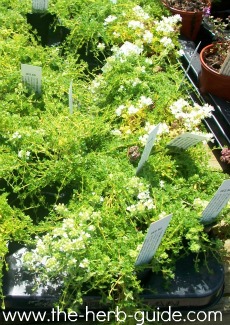
Take a plant indoors if you want thyme through the winter - it will be fine on a windowsill with plenty of light.
Thyme Rescue Remedy
If you are lucky enough to inherit a herb garden but it is a little overrun, then follow these instructions.
Give the area a thorough weeding and water it. Any plants that are obviously past their best, take off the leaves and either dry or freeze them.
You could try cutting the grown plants back a little - about 6 inches or so would be good - to see if they will come back stronger next season.
However, as thyme self seeds and creeps, it could very well be that you merely need to tidy the area to have a useful patch of thyme - just treat it with tender loving care, keeping the soil moist and the area weed free.
Growing thyme is very worthwhile - there are many culinary, medicinal and cosmetic uses - it smells and tastes delicious.
I like to plant thyme in pockets in the patio - when you walk over it, it releases the most wonderful aroma.
What would you like to see next?
I may receive a commission if you purchase something mentioned in this post. See more details here This will not affect the amount you pay.

